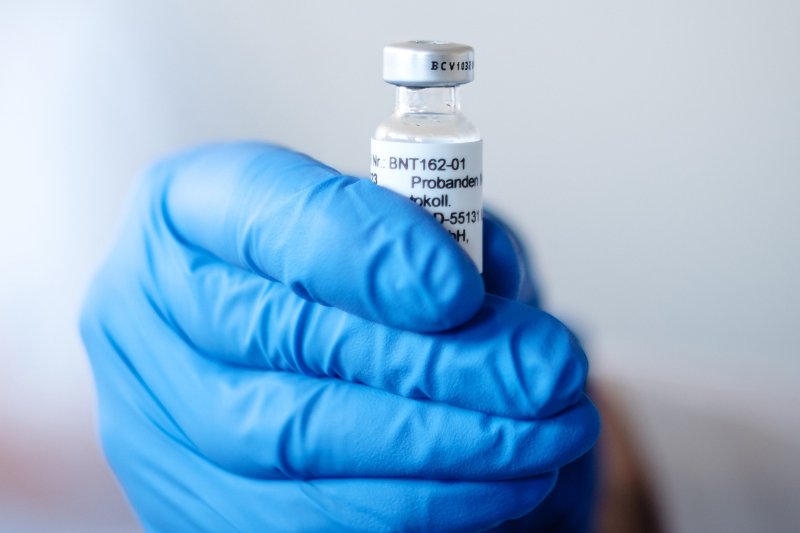1 of 3 | As many as 25% of all young adults in the United States plan to refuse the COVID-19 vaccine, according to new CDC data. File Photo by BioNTech SE/EPA-EFE
June 21 (UPI) -- One in four adults age 18 to 39 in the United States "probably or definitely" will refuse to get the COVID-19 vaccine, according to survey data released Monday by the Centers for Disease Control and Prevention.
Roughly the same percentage said they were "unsure" or "probably would" receive the vaccine, the data showed.
These percentages were both higher among Black people, with nearly one-third indicating that they would probably or definitely not get inoculated against the coronavirus and 28% suggesting they were unsure.
Among respondents who reported that they would likely refuse the immunization, just under 57% cited "lack of trust in COVID-19 vaccines" as the reason, while another 36% believed the vaccines were unnecessary.
Of those who were unsure about getting vaccinated or probably going to get vaccinated, as well as those who were not planning to get vaccinated, about 56% said they were concerned about experiencing vaccine side effects.
"The findings in this report indicate that trust in COVID-19 vaccines, particularly in their safety and effectiveness, was an important factor in the decision to get vaccinated," the CDC researchers wrote.
The findings are based on a survey of more than 2,700 adults age 18 to 39 conducted in March, April and May.
Of the respondents, 34% reported that they already had been vaccinated, while 52% said they were either vaccinated or planned to get the shot.
To date, the U.S. Food and Drug Administration has approved three COVID-19 vaccines: the two-shot vaccines from Pfizer-BioNTech and Moderna and the one-shot vaccine from Johnson & Johnson.
So far, data indicates that all three are effective at preventing severe infection, and that side effects are extremely rare.
The Biden administration has said it hopes to have 70% of adults in the United States fully vaccinated against the coronavirus by July 4, though experts have noted the country may not meet that goal as the number of people getting vaccinated each day declines.
A person is fully vaccinated against the virus two weeks after they have received their second or last dose, in the case of a one-shot vaccine.
Through Monday, 65% of U.S. adults age 18 and older had received at least one dose of a COVID-19 vaccine, though just under 56% of adults are fully vaccinated, according to CDC data.
A separate report published Monday by the agency showed that vaccination rates among adults of all ages, however, peaked in March and have slowed since early April.
In April, the U.S. was vaccinating about 5% of its adult population each week, and that figure was well under 2% by mid-May.
"Despite expanded eligibility to all adults in the United States by April 19, vaccine initiation among persons aged 65 years [and younger] has not increased at the same rate observed in earlier periods among persons aged 65 years [and older]," the CDC researchers wrote.















